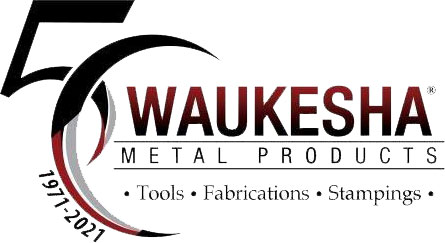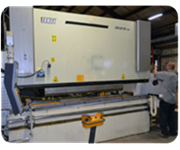Sheet metal fabrications (laser cutting, punching, forming, welding, assembly, etc.) are used by a wide range of industries. Regardless of your line of work, the most important thing is how your fabrication is being produced and how well it is serving the needs of your customers. There are many companies offering these services, but do your research and choose wisely. Below are 6 tips for choosing the right sheet metal fabricator for your projects: 1.) Business Stability- How many years has the company been in business and do they have an established record? A sheet metal fabricator that has been around for several years and has experienced management will more likely understand the complexity of your projects. 2.) Full Service- A fabricator with a complement of in-house capabilties can be a benefit for time sensitive projects. Common secondary services including: drilling, milling, tapping, hardware insertion, electromechanical assembly, welding and mechanical fastening should be completed by your metal fabricator to avoid additional cost and longer turn-around times. 3.) Innovation – New technology is essential in the metal fabricating world. Equipment such as CNC Turrets, Servo-Electric Break Presses, lasers and robotic welding stations should all be present in todays sheet metal fabrication shop. The willingness for equipment and process innovation is a good indicator of a company with long-term goals for growth. (Waukesha® Metal Products recently completed a project that required new pulsed welding power supply with push-pull whip for welding aluminum. See the photos here.) 4.) Talent and Technicians- Your fabricator should staff many talented and professional team members with years of applied experience. Having a variety of skilled Engineers and Program Managers who will not only help you every step of the way, but also offer you program lifecycle support from concept to design, prototype and production. Ask who your main contact person will be, and if they will be the contact throughout every stage of the project. 5.) Quality Assurance- A company with a robust quality management system in place gives you more confidence and trust in the end result. Ask to see any Quality Certifications they have, in particular the International Standardization Organization (ISO) Certificate. Your fabricator should work with you to identify critical features/dimensions and potentially identify tooling or design changes that can minimize the impact of standard process variation. Appropriate process controls should be established to deliver a cost effective product that meets your unique specifications. 6.) Reliability- Attaining acceptable delivery performance is one of the most difficult challenges manufacturers face. Ask if the company has an IT-System in place to monitor data such as job scheduling/tracking and shipping schedules. Clear communication should also be present with a reliable metal fabricator.

